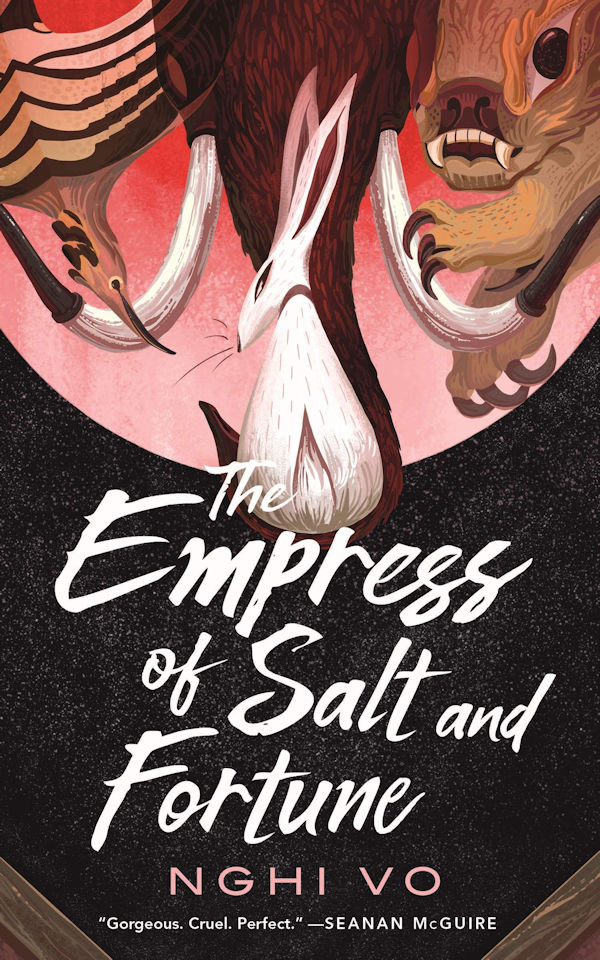
Their stories intertwine, and after In-Yo is exiled from the palace, Rabbit continues to serve her faithfully. They meet when Rabbit is a servant girl and In-Yo is the Emperor's newest wife. Without spoiling the context, my favorite line is simply, "Angry mothers raise daughters fierce enough to fight wolves." While Chih is the frame narrator for this story, the plot revolves around Rabbit, In-Yo, and the complex relationship between these two extraordinary women. Furthermore, this world is free of homophobia. Rabbit speaks of loving both men and women, while Empress In-Yo is also queer. "Not a girl at all, but a cleric." As a cleric of the Singing Hills abbey, Chih appears to renounce gender entirely They shave their head, adopt they/them pronouns, and eschew gendered terms such as "girl," although they are gracious and understanding of Rabbit's mistake. This was such a refreshingly queer novella! Rabbit, an elderly woman who resides near Lake Scarlet, greets Chih by referring to them as a girl, but upon closer inspection, she realizes she accidentally misgendered them. It's a nice change of pace from the majority of high fantasy settings, which often take place in worlds inspired by medieval Europe.


The East Asian influence shines through every aspect of the richly detailed world, from the dynastic political landscape, to the names of the characters who populate the empire, to the foods they eat. The Empress of Salt and Fortune is set in the fictional empire of Anh, a fantasy world inflected with Chinese history and mythology.


 0 kommentar(er)
0 kommentar(er)
